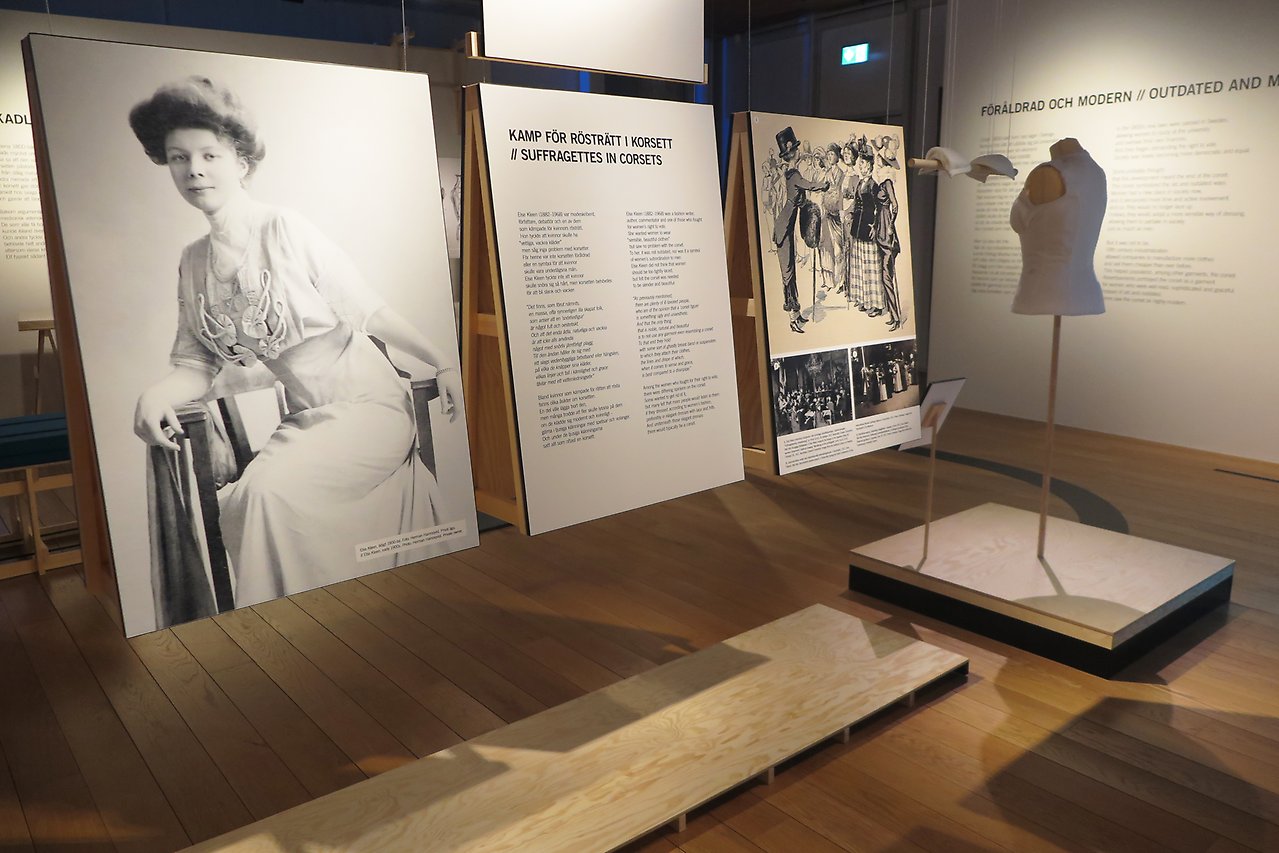Coverphoto by LisaLove Bäckman
War of the corsets bild_ny
MAY 31 2021 - SEPTEMBER 3 2022
War of the corsets
fighting to shape femininity at the turn of the last century
In the late 1800s, the corset became the focus of intense debate in Sweden. A small garment turned into a major political issue. The corset became an ideological battlefield, triggering debates about power, gender, identity, and class. About the shapes and limits of femininity. About the past, present and future.
In the exhibition War of the corsets – fighting to shape femininity at the turn of the last century, you will encounter an unequal Sweden, where who you were dictated the life you lived. Above all, men and women led very different lives. And it really showed.

Women and men were considered to be complete opposites of each other, and this affected nearly every aspect of society: people’s roles at home, the jobs they could have, how women and men could dress and act and who could influence politics by voting.
At the same time, the way people lived and worked underwent major changes. Instead of living in the country and working with agriculture, many people moved to the city to work in factories and shops. This dramatic upheaval changed the world forever. New social groups appeared in the city: the wealthy bourgeoisie and the poor working class.
In the middle of all this we find the corset. It was a way of enhancing the female form, to clearly show that the wearer was a woman and nothing else. When women started demanding emancipation, the right to vote and access to education, a debate about women’s clothing arose.
The critics said that the using the corset was vain, dangerous to women’s health and had no place in a modern society. But women turned out to have a complicated relationship with the corset. Some defended it, saying it was decent, healthy, and modern rather than provocative, harmful and outdated. The war against the corset, became a war about the corset.
The exhibition Korsettkriget – modeslaveri och kvinnokamp vid förra sekelskiftet was produced by Örebro University in 2019. It was based on the research of historian Henric Bagerius. In Umeå, the content and composition of the exhibition has been expanded on in a close collaboration between Henric Bagerius and the Museum of Women’s History. In Umeå, the exhibition is called War of the Corsets – fighting to shape femininity at the turn of the last century.
